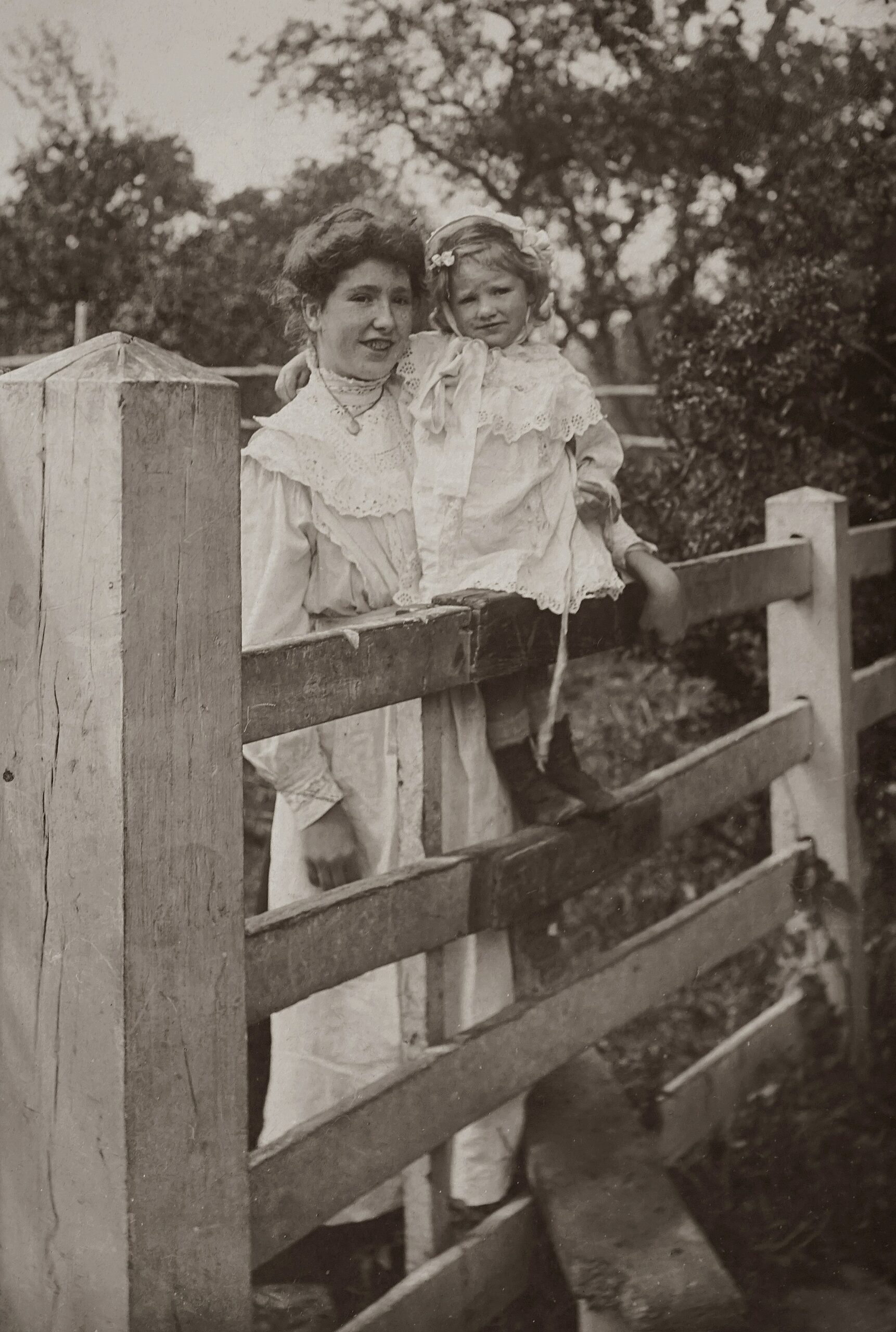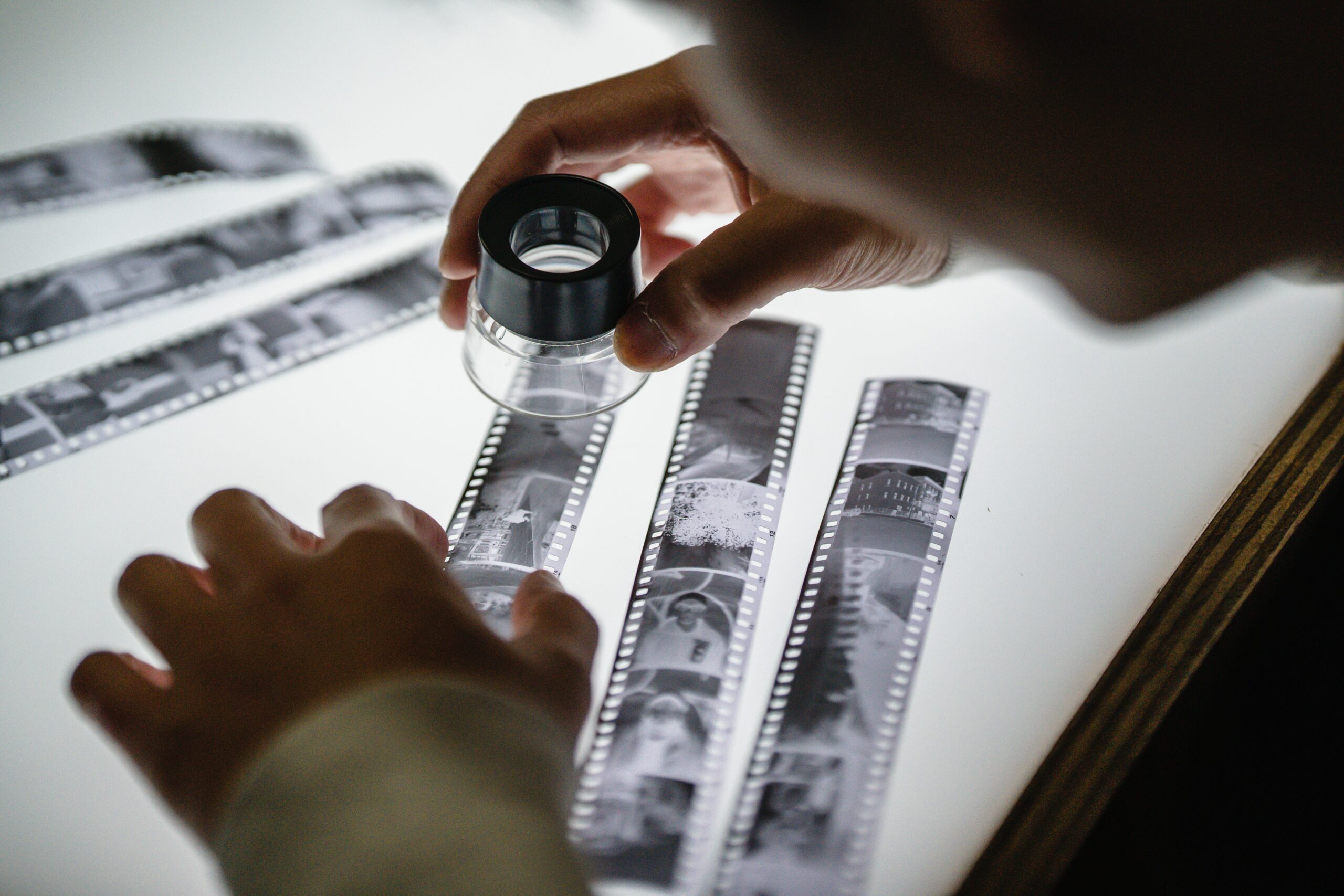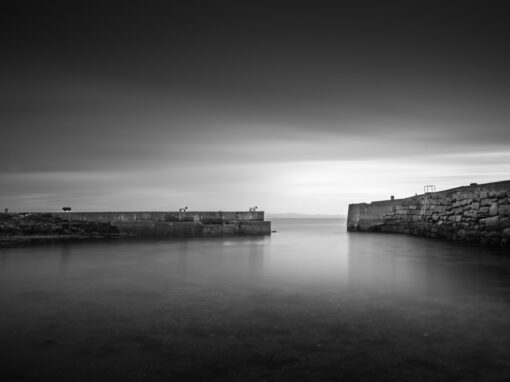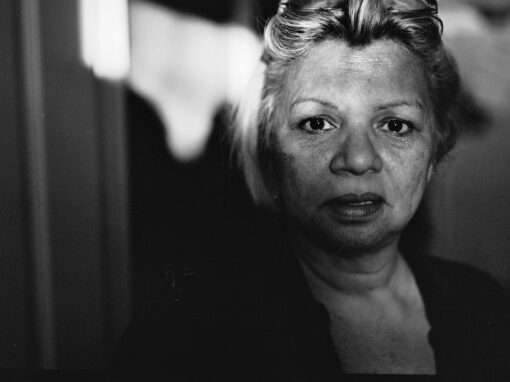By now, photographers worldwide are versed in the arguments for and against using artificial intelligence, AI, in terms of image making. Some contend that by the name alone – photography involves light, of course – that computer-generated imagery cannot be considered photography. Some might say that photography is often, though not always, a lens-based art. And some point to the creation of portraits of people who do not, have not, and will never exist. Shane Balkowitsch, who has made a life of photographing Native Americans in his North Dakota studio, makes this point clear when he shows AI images of “Native Americans,” which serves to insult the history of America’s aboriginal tribes. There are some things, he might say, that you cannot fake.
There is also the argument that AI will steal jobs from photographers and studio personnel who attend to lighting or props, conceptual artists, etc. Whatever the argument, they tend to be aesthetic or economic in tone. What I have not yet seen, though, is any reasoned argument that gets at the fundamental issue of why one would be creative at all and practice an art like writing or photography – an idea that concerns meaning. This is not an argument as to why you should purchase ChatGPT so you can write better content to market a pair of socks or use AI to make outlandish landscapes or create human beings on the fly, but instead why you should double down on writing and art that comes from yourself.
When I refer to meaning, I am generally referencing the entire argument about the “meaning of life,” which is something I’ve given much thought to, especially in the last three years. But closer to the grain is the idea of how an individual generates meaning in their life, and in this fashion, “meaning” is more synonymous with “purpose.” And so it struck me immediately when I began to see social media ads for various AI devices that could help people write better ad copy (the whole enterprise seems so mundane to me, I admit); the real threat was not existential, economic, or anything of that sort, but rather a crisis of purpose: a crisis of identifying the meaning of such work and, by extension, the importance of our lives.

Drawing on psychologist Viktor Frankl and two of his books in particular, Man’s Search for Meaning and The Will to Meaning, and psychologist Mihaly Csikszentmihalyi, best known for his idea of “Flow” in his book of the same name, it becomes clear that photography as an art form has a purpose. Frankl and Csikszentmihalyi suggest that when people set a goal and work towards it, they generate meaning in their lives. To have meaning, you must, as we like to say, “do the work.” Most importantly, both say that happiness depends on this work but does not happen at the completion of the goal but in moving towards the goal. Happiness lies in the doing, not the finishing. When the runner arrives at the finish line, it may indeed be a burst of elation, but during the long race itself, the runner finds themselves in a state of flow and, therefore, in a state of true happiness. We’ll soon need to speak to precisely what that happiness entails because it is not what we might think. The idea of meaning is also inextricably bound up with motivation.
Meaning in photography can come from several directions, each allowing you to transcend your limited egoistic self and escape the grip of negative overthinking – something we’re prone to, as Buddhists have noted. One is to make photographs for others and give them to people who will be happier. Another is to contribute to the larger tradition of photography, now around two centuries old.

When you undertake photography – and I must admit that for me, this is film photography, which involves a lot of additional skills – you must match your skill level to the difficulty of the project. A high skill level engaging in a big challenge enables the state of “Flow,” which is something any photographer will recognize, though I would emphasize that the state of flow also allows one to escape thinking. Flow keeps one actively engaged. I would question whether using ChatGPT, say, to write a blog post would actually constitute flow. All the skills of composition, organization, idea generation, and indeed what it is you have to say – and photography is no different than writing – are all discarded for, as the advertisements suggest, ease. And ease means more leisure time – but Csikszentmihalyi points out that leisure itself is to blame for unhappiness. The unoccupied mind starts to spin. Making things easier invariably makes things worse. No challenge, no happiness.
Frankl often quoted Nietzsche: “He who has a ‘why’ to his life can bear almost any ‘how.'” Having “leisure” as a goal, as a “why I live and what I live for,” having essentially a life of doing nothing, is finally destructive because the nature of the mind is this (and Buddhism concurs): when unoccupied, the mind sinks into rumination, which is a spiraling pattern of negative thinking. The mind – or the “monkey mind” as Buddhism likes to call it – is generally always looking for danger, what is wrong in the environment, and it tends to rehash what it sees as mistakes over and over (the classic definition of “rumination”) so that it might avoid making mistakes in the future. This is the natural state of the mind, but if we give it enough rope and time, it will make life hell for us. The cure for this “overthinking,” Csikszentmihalyi says, is to engage the mind in a state of flow, and the way to do that is, like Frankl declares, to set a goal. Csikszentmihalyi suggests that when you are in a state of flow, that is the very state of happiness we seek. It is essentially the same as what Frankl proposed: in the movement toward a profound goal, “happiness ensues.” It must be found en route, not strictly at the finish line.
I am biased toward film photography, at least in my practice, because it demands a lot of me. Loading film, driving to a location, packing in heavy camera gear on a trail or through some narrow alley. Setting up the camera, composing, measuring the light, and making an exposure. Developing the film, washing, drying. Making prints, determining contrast values, and even making masks. More washing, toning, washing again, drying. Mounting, framing. All of this I do with enthusiasm. The photograph I make is, from start to finish, utterly mine. And in that process, I find happiness. When I finish one photograph, I make another. I like to think of my photography as artisanal, a kind of cottage industry. It is a true “craft.”

In light of this, all we need do is consider what happens when we hand over this effort, this “doing,” to AI. When AI does the work of actually producing an image, where does that leave us? What meaning is in it? To Csikszentmihalyi, the achievement of flow has some guidelines, in that it must be difficult enough that it is a challenge, and our skills must be adequate to meet the task. If there is an imbalance, we will be frustrated, bored, anxious, and apathetic. But if we are fully engaged, when our skills match the task’s difficulty, we achieve a state of flow, during which we are demonstrably happy because we have extinguished rumination. The self and its chatter vanishes. And as the Buddhists and the Hindus have intoned, to be free of the self is to find peace.
AI, I conjecture, will not give me peace. It takes away the very work in which I might find peace – at the very least, in terms of any creative project, anything that demands the exercise of my intellect and certainly my heart. There is no perspective in the final work, I would argue. Further, as any creative knows, the great loss is the sudden insight, the beginnings of understanding, the blinding flash of illumination that comes while one is working on finishing the photograph. The loss of such a feeling is incalculable. The leisure that comes from handing over the effort to software is nothing compared to that feeling. Leisure is a loss of meaning. Those who peddle AI are trying to sell the idea of leisure – that offshoring this work will give us time for what? Other endeavors. As the Guardian UK recently pointed out, capitalism and all its promises undergird the whole idea of AI. It is the monetization of removing labor and somehow freeing us. The only way to freedom is to actualize the purpose we imagine for ourselves and strive toward it. Even if we fail, it is not a failure of will nor of meaning because we know we are moving toward something important, transcendental, and invaluable.
SEAN PATRICK HILL
Sean Patrick Hill is a photographer, freelance writer, essayist, teacher, and poet. He is a graduate of the Warren Wilson College MFA Program for Writers.
Sean has been awarded grants and fellowships from the Kentucky Arts Council, the Great Meadows Foundation, the Vermont Studio Center, and the Elizabeth George Foundation. He is the author of five books, and his photographs have been hung in the First Light Gallery, Pyro Gallery, and the Chateau Gallery.





Diana Nicholette Jeon
September 5, 2023 at 11:20
Quote: Further, as any creative knows, the great loss is the sudden insight, the beginnings of understanding, the blinding flash of illumination that comes while one is working on finishing the photograph. The loss of such a feeling is incalculable. The leisure that comes from handing over the effort to software is nothing compared to that feeling. Leisure is a loss of meaning. Those who peddle AI are trying to sell the idea of leisure – that offshoring this work will give us time for what? Other endeavors.
I’m a creative, award-winning, internationally exhibited. I could not disagree more. I wonder why it is that the AI naysayers always try to make it so that “any logical thinker” would think the same as they do? The serious photographers also seriously using AI as a part of their practice feel no need to put down the naysayers. Hill is welcome to his thoughts, but they could not be more different than mine. Unlike Hill, I won’t attempt to speak for him as a fellow creative.
Patrick Chuprina
September 6, 2023 at 15:18
“I’m a creative, award-winning, internationally exhibited. “ And this makes your opinion important or legit?
Diana Nicholette Jeon
September 6, 2023 at 17:58
LOL.
Shane McGeehan
September 6, 2023 at 21:20
Well… how does it not? I mean, if being more skilled, knowledgeable, and experienced in a particular area doesn’t make your thoughts legit and important, why do we always look up to experts to mold our own thoughts? We do in every field.
Rob Wilson
September 5, 2023 at 20:51
Excellent article, Sean.
You raise some interesting questions and make some fine points. I find the idea of attempting to pass off AI as a “real” photograph thoroughly soul-destroying.
The pace that the technology has moved quite extraordinary. I did an article earlier this year for Frames on AI, and looking at it now, I might as well have written it in the 19th century.
I have one tiny disagreement with you, but it is tiny. I think film and digital photography involved a slightly different skill set rather than necessarily additional skills for film.
However, I adore the medium in all its forms.
Thank you for a great read!
Shane Balkowitsch
September 5, 2023 at 21:16
How did I know you would be the first to troll this article? Serious photographers do not use A.I., they have no need for it, they get it in camera. None of the great masters had at their disposal A.I. and if they did, I doubt they would have used it. You do not speak for all serious photographers.
Shane McGeehan
September 6, 2023 at 15:38
Haha, literally everything you said in here was just assumptions and sweeping statements. Listen man, if you don’t like AI, don’t use it. Not even the clone tool. Just keep using your old processes and let people use new ones if they choose to… None of the great masters had AI? Oh no really? Funny thing is none of the great early photographers had digital and photoshop and today some of the best serious photographers do. Times change, man. If you want to live in the 1800s with a bowlers cap, do it, but don’t try to drag everyone else back in time with you. Some of us live in the present.
Shane Balkowitsch
September 6, 2023 at 15:44
There is one assumption that is grounded in truth, A.I. is not photography, I have written many articles on the topic, I have no issues with A.I. and I have no issues with people using it. I do take exception when it tries to pretend or encroach on photography, it is not that, you know it, I know it, anyone who understands photography knows that. Keep the word photography and A.I. image making out of the same sentence is my only position. I have many friends that make beautiful A.I. images and I praise them all the time. What they are not doing is pretending it is something it is not.
Shane McGeehan
September 6, 2023 at 21:17
Maybe I am mistaken, but I didn’t read that in your comment. I do agree, to a point though.. My issue with that is that people seem to be arguing constantly with hardly anyone on the other side. The only people I see calling AI “photo” are regular random people online who don’t know photography or terminology anyway – and a image or photo or pic are all the same to them. It’s a very rare occurrence that someone says straight AI is photography, and yet in photo groups and articles like this it’s just a constant echo as if the battle is a close fight. I was in an article months and months ago supporting AI and also voicing that photo equals light, and light is not involved with AI, just math. However, I do think you can use AI within photo editing and still call it photo, as we do with many AI driven tools. Or, in a rare case, if an AI were to be trained on ONLY photography, the output could (in a very strange case) possibly be called a photograph – because all of the input involved light capture.
I really just wish people would calm down about the whole AI thing. It’s becoming a boring echo. You get tons of photographers yelling “AI isn’t photography” and hardly anyone else saying it is or giving a care in the world.
Diana Nicholette Jeon
September 5, 2023 at 22:40
Tomas notified me of the article. I didn’t TROLL it. As to the rest, I have no comment because you just like to put down people who do not agree with you. Goodbye.
Shane Balkowitsch
September 6, 2023 at 00:56
Frames has a No A.I. policy for a reason. Frames is interested in real photographs using light made by real photographers.
Diana Nicholette Jeon
September 6, 2023 at 01:02
Keep on talking with yourself about this. I have zero desire to engage with you.
Robert Stone
September 6, 2023 at 02:51
I think that like all new technology, there is fear that it will replace the old. Painters felt the same way about photographs that it wasn’t real art, film photographers said that about digital, and now they say that about Ai.
Ai is becoming required introduction in photo programs, let that sit.
Any expressive technology can be used for good or for bad. It’s up to us as artists and as society to allow for progress but to guide it. I’m sure frames and other magazines will eventually allow it, heck Adobe allows you to edit your own photos with Ai tools. The person guiding the Ai is still using the tool to craft, it’s just a different skill-set.
Pat Chuprina
September 6, 2023 at 19:45
Article is about AI image creation NOT AI editing. Two different beasts. A photograph edited with AI is still a photograph, a AI created image is not photography.
Shane McGeehan
September 7, 2023 at 14:51
I just don’t get why we are still going on about this. Hardly anyone is saying AI is photo, and yet all photographers seem to be doing is defending what isn’t under attack. It’s basically an annoying one sided argument, minus a rare few.
Robert Stone
September 7, 2023 at 18:23
Shane M, I think that when Digital first came out, many photographers were saying using photoshop beyond what darkroom could do was “Graphic Arts” and not to be called photography, eventually this changed. There’s also things like collage, non-camera based imagery (still considered photography), like photo-grams. The Ai can be trained on YOUR actual photographs and then asked to create based on a set instruction, if the images are photo-based, how is that different from graphic arts in photoshop? It’s more complicated than I think you realize. There’s nuance to “what is Ai art/photo” and what is “Ai assisted photography” and what is not. If I take a film photo, scan it, input that into Ai, ask it to make my bird photo into a flying buffalo, some elements are photo from the original, but the Ai pulled images from Buffalo I didn’t take, is that a photograph or not? Parts of it are… so how is that different from photoshop removing a sign and the algorithm filling in behind the sign with content aware fill? It’s not really very different. So it’s a complex question.
Shane McGeehan
September 8, 2023 at 18:38
Oh for sure, I’m quite aware.
Matt Temple
September 10, 2023 at 06:01
I think you are referring here to a standard “straw man” fallacy, in which a person distorts what another person says in order to make it easier to attack. As far as I can tell, people generally call the thing being discussed an “AI-generated mage.” And as to how people use those images and whether and how people find meaning in them, this is deeply personal. It is not for anyone to declare what I might or might not find meaningful. But as in so many discussions of art, people will take what they like and claim their preferences to be truths. Instead of saying “this is how I think about art,” it becomes “this is how everyone should think about art”
Diana Nicholette Jeon
September 11, 2023 at 11:03
Now that I have time to digest it, after being asked to read it by Tomasz, I still feel the same. I also feel that since this author is more of a writer than a photographer, per his own website, Shane the 1839 Crusader asked him to write the article. I could be wrong; I often am. But given the author’s lack of engagement in the frames community, I do not see this as just coming out of the blue without an instigator who wrote negative things about me on his timeline, all because I followed my boss’s request (as a monthly columnist for frames) and read the article. I feel like the article was planted by 1839er. But whatever. No one I know cares what he thinks on this topic. And I will never see eye to eye on the article with it’s author.\
Patrick Chuprina
September 11, 2023 at 13:07
Trolling again? What purpose does this comment have? What purpose is there calling a contributor “Shane the 2839 Crusador?”
So what Tomasz asked you to read it, don’t defelect your boss made you read the article. Did he make you write this late trolling inflammatory comment?
“I also feel that since this author is more of a writer than a photographer, per his own website, “Shane the 1839 Crusader” asked him to write the article. I could be wrong; I often am. But given the author’s lack of engagement in the frames community, I do not see this as just coming out of the blue without an instigator who wrote negative things about me on his timeline,” Now it is a conspiracy; because the creator of this piece is more a “writer then photographer,” or “author’s lack of engagement in the frames community?” A guest contributor maybe, a new contributor, a writer with a unique contribution does not make this a conspiracy. Whether the writer is “more a writer then photographer” or a “photographer more then writer” matters not.
I may not know you and am personnally happy I don’t; but I care about this subject and don’t blindly assume “No one I know cares what he thinks on this topic.”
I Personnally don’t care “I will never see eye to eye on the article with it’s auther.” You are allowed as much as we are allowed our own beliefs.
This reply was crafted solely on my own, is not conspiratory and Shane has not advised me on the content.
Diana Nicholette Jeon
September 11, 2023 at 20:09
I was never “trolling”, Patrick. The rest I will leave for your imagination, since my words do not seem to say enough for you.
Simon
March 20, 2024 at 18:36
When I read this article, I found it a courageous attempt by the author. It presents interesting concepts. We feel that this is a carefully considered text.
But thinking against the mainstream of opinion on technical progress is often resented by all those who have chosen to use it. And the polarization is immediate. It’s a shame, because it should rather be a question here of thinking a little, of taking a step back from this object which we absolutely do not know if it provides us with a real service or if it confines us a little more to a subordinate role. I find this whole debate quite sad actually, like a missed opportunity.
In fact, I believe that everyone who thinks he will benefit from this tool feels challenged, which leads him to express a radical point of view. I think the author has the right to write that he cannot consider AI as a trivial tool that will simply increase its efficiency a little more. This type of point of view must also be able to be expressed calmly and respectfully. We observe around us the ravages of technical progress: environmental, social and cultural. It’s indisputable. And it may well be that we are in fact witnessing technology’s final attempt to submit to standardization once and for all. A creator can only be wary of this. It is his right and perhaps even his duty to speak about.